St. Laurent, Blaufränkisch, and Zweigelt (also known as Rotberger) are the holy trinity of Austrian red wine. These three grape varieties — Zweigelt being a cross between St. Laurent and Blaufränkisch — share a lot of characteristics. They tend to be medium-bodied with grippy tannins, refreshing acidity, and bright berry notes. They can also offer savory qualities like notes of earth, pepper, and smoke that add complexity.
These grapes can also possess an incredible range of expressions, as both single-varietal bottlings or blends. Depending on region and winemaking style, they can be light-bodied, quaffable liter bottles or deep, age-worthy powerhouses that call for meats, cheeses, and charred vegetables.
This list focuses mostly on the wine zones of these varieties’ native soils, with some examples from neighboring countries like Slovenia, and even a few bottles that prove these grapes can thrive in the U.S. as well. From their home in Austria to the top of Michigan and the shores of the Finger Lakes, here are the 12 best Austrian reds for 2024.
Felix Austria R&B NV
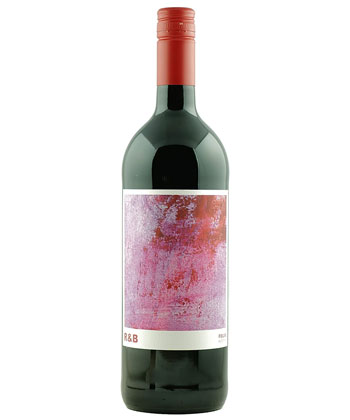
Thank you, Austria, for being the land of liter bottles. A country that can give us both delicious, age-worthy wines and casual, easy-drinking wines, and not compromise on quality in either category, is a win-win. This blend of 85 percent Rotberger and 15 percent Blaufränkisch is ready for a big meal, good friends, and long conversations. It has a juicy nose with concentrated fruit and a hint of herbs. The palate is slightly rich with great supportive acidity, giving a comfortable medium weight to the wine.
Average Price: $15
Rating: 90
Landhaus Mayer Zweigelt 2022
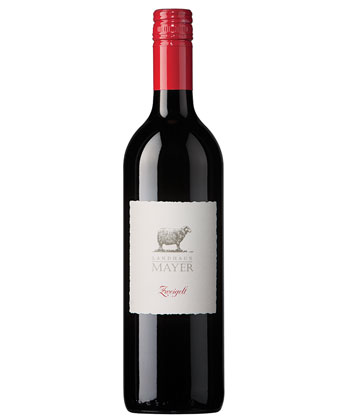
With a lake on one side of the vineyard and a forest on the other, this Zweigelt from Lower Austria enjoys a moderate climate. What does all this mean? Just try the wine and see. The nose offers notes of wild berries and juicy cherries with a pop of savory herbs. The palate has deep fruit and soft tannins brightened by good acidity.
Average Price: $16
Rating: 93
Sattler Zweigelt 2021
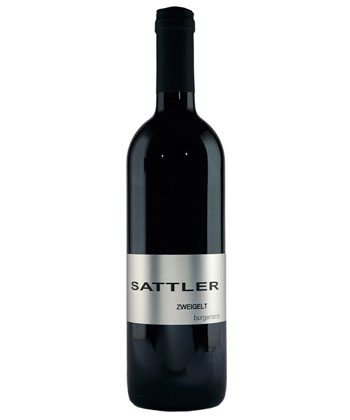
This Zweigelt from Austria’s Burgenland region showcases the fresh, savory side of this grape. It has earthy, brambly berry notes with the slightest hint of pepper on the nose. The mouthfeel is rich and smoky with medium fruit and great natural acidity, holding the wine up on the palate.
Average Price: $18
Rating: 93
Glatzer Carnuntum Blaufränkisch 2022
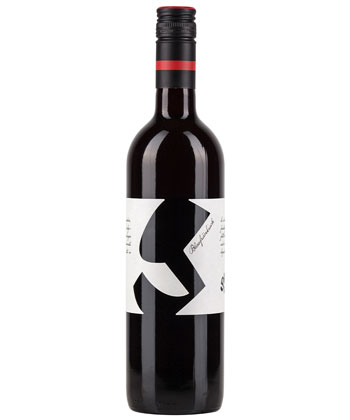
Halfway between the cities of Vienna and Bratislava is Carnuntum, an ancient city that dates back to the time of Gaelic Rome — or even earlier. This is where Glatzer makes wine. This is its casual, village-style wine that would fit right into the everyday life of the Roman houses excavated there. It has peppery fruit on the nose with a slight floral hint. There’s a nice grip on the palate with medium fruit and a good dose of acidity. This isn’t necessarily the most complex wine, but that’s not what it wants to be. Rather, it’s great for casual events, and chillable all day.
Average Price: $20
Rating: 90
Prieler Oggau Johanneshöhe Blaufränkisch 2020
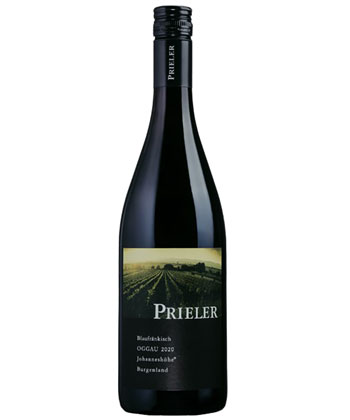
Blaufränkisch can be a big, bold red wine. But here in Burgenland, on the eastern edge of Austria, the highly draining soils and ample sunshine create a perfect balance. This wine has that bold vibe but with good lifting acidity. Dark berries and saline with an earthy edge on the nose. The palate is soft and juicy with a nice medium concentration of fruit.
Average Price: $21
Rating: 91
Dorcha Carbonic Frankinja 2023
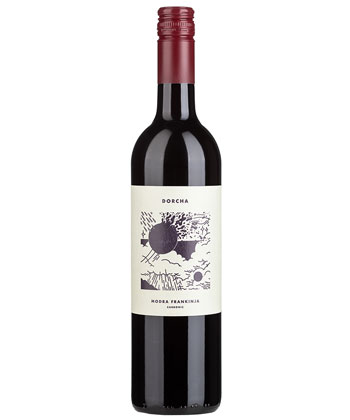
With Austria just to the north it makes sense that this Slovenian winemaker works with Blaufränkisch — known as Frankinja in Slovenia. It’s slightly different from its counterparts to the north, but a delicious example nonetheless. Made with the carbonic maceration method, it’s delightfully fruit-forward with ripe strawberry and plum notes. The bright fruit is complemented by more savory notes of pepper and herbs.
Average Price: $22
Rating: 91
Schwarz ‘The Butcher’ Zweigelt 2021
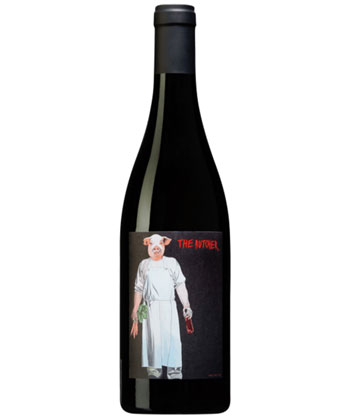
This Zweigelt sits right in the comfort zone between a chillable, easy-drinking red and a well-structured, food-friendly bottle. The nose has spiced meat and wild berries with a hint of soil. The palate is delicious with good medium fruit and ample acidity.
Average Price: $22
Rating: 90
Fox Run Vineyards Lemberger 2021
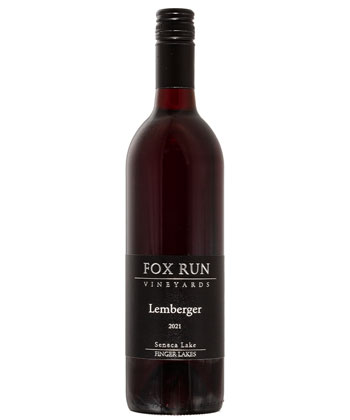
New York is known for its cool-climate white wines like Riesling, but they also work with cool-climate red varieties like Lemberger (another name for Blaufränkisch). This is a leaner expression of the variety, and it works. Aromas of ripe berries and black pepper fill the nose. The palate finds a great balance between fleshy fruit and bright acidity.
Average Price: $25
Rating: 91
Rosi Schuster Sankt Laurent 2022
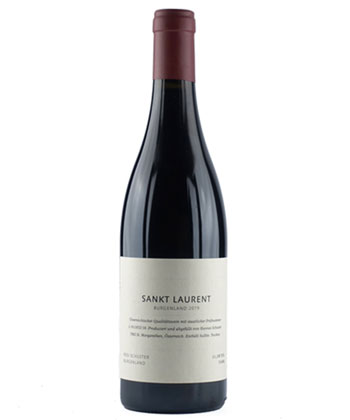
Hannes Schuster took the reins of the wine estate from his mother in 2007 and committed to organic agriculture and thoughtful winemaking practices. The results are wines like this Sankt Laurent (also known as St. Laurent) that show both elegance and depth simultaneously. The nose is mineral-driven and tart with savory fruit and a lean, herby edge. The mouthfeel has great medium concentration of fruit with a nice amount of acidity that lifts up the wine on the palate but still maintains depth.
Average Price: $26
Rating: 91
Hermann J. Wiemer Blaufränkisch 2022
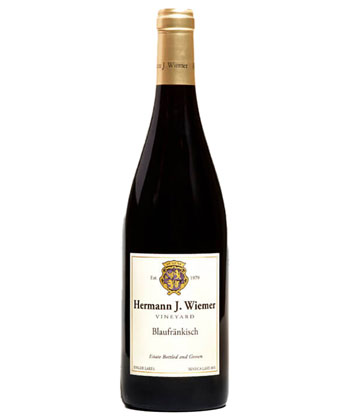
This winemaker is famous for their work with Riesling in the Finger Lakes, but wow, do they make a delicious Blaufränkisch. Like, very delicious. The nose is rich and dark with deep berry notes balanced by minerality. The palate is filled with soft, plush fruit and excellent natural acidity, but with a slight grip around the edges. A great example of an American Blaufränkisch.
Average Price: $32
Rating: 93
Aurora Cellars Blaufränkisch 2021
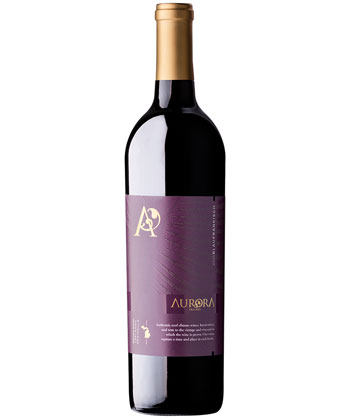
Michigan has a cool climate — to say the least — and this cool-climate grape from Austria thrives in the state’s northern Leelanau Peninsula. This is one of the most expressive examples of Blaufränkisch in the U.S. The nose has deep, dark fruit aromas with slight notes of cured meat and pepper. The palate is round and juicy with an impressive fruit depth. Another great example of what this grape can do stateside.
Average Price: $48
Rating: 92
Schwarz Rot ‘Icon’ Zweigelt 2021
![]()
If you’re a fan of Zweigelt, this is a bottle worth seeking out. This variety can yield bright, punchy wine as well as wines like this. Deep, rich, and aromatic. It has an expressive nose with dark cherry fruit, cured meats, fennel, and bay leaf. The palate is deep and weighty with excellent acidity and absolute balance.
Average Price: $75
Rating: 94
FAQs
What Are Austrian Red Wines?
This category consists of several red grape varieties that are local to Austria and the broader area of Central Europe, including Blaufränkisch, St. Laurent, and Zweigelt (which is a cross between Blaufränkisch and St. Laurent).
Where Do Austrian Reds Come From?
Even though they are native to Austria, these grapes can also be found in bordering countries like Hungary and Slovenia under different names, Kékfrankos in Hungary and Frankinja in Slovenia. These grapes are also seeing an increased presence in new regions across the globe, specifically cool-climate areas like the Finger Lakes and Michigan in the U.S.
What Do Austrian Red Wines Taste Like?
The three primary red varieties found in Austria (Blaufränkisch, St. Laurent, and Zweigelt) are typically medium-bodied with slightly grippy tannins and fresh acidity. They can be fruit-forward with juicy blackberry and raspberry notes, but sometimes also show hints of savory character like pepper, earth, and smoke.


